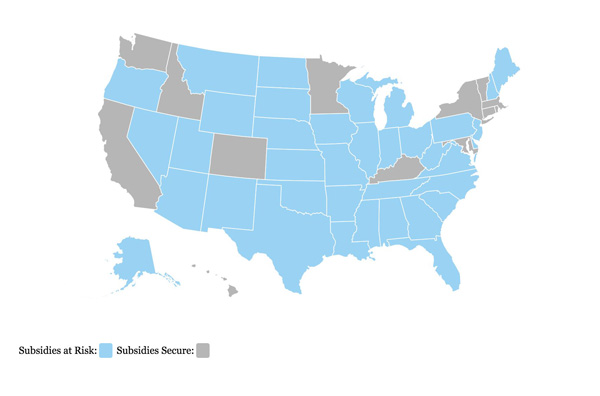Obamacare changes could hit home in New Mexico

The U.S. Supreme Court is poised to issue its decision in King v. Burwell in June. The ruling could have tremendous consequences for the health care law commonly known as Obamacare – and more importantly, it could have a huge impact right here in New Mexico.
King v. Burwell was argued before the Supreme Court in March. The case hinges on an interpretation of the Obamacare law. The plaintiffs argued that the text authorizes premium subsidies for people in “exchanges established by [a] State.” A separate section describes the creation of a federal exchange by the Secretary of Health and Human Services for states that do not create their own exchanges.
An IRS rule issued in 2012 allowed premium subsidies to be paid through exchanges established by the secretary. The plaintiffs argue these subsidies are illegal, since there is no congressional authorization for the spending. If the justices concur, states that have not created exchanges under the law could see some dramatic changes.
However, New Mexico has a “hybrid” exchange. So the first question is whether our state will be impacted by a ruling for the plaintiffs. Amy Dowd, director of the New Mexico Health Insurance Exchange, has argued that we won’t be impacted.
Michael Cannon, a health care expert at the libertarian Cato Institute, disagrees. The liberal Kaiser Family Foundation also believes that New Mexico could be impacted by a finding for the plaintiffs.

What would such a ruling mean for New Mexico and what should policymakers do in that event? According to Kaiser, 72,280 New Mexicans could lose their subsidies, and could thus have to pay the full cost of their health care. This may be an undesirable outcome for these individuals, but those costs would no longer be borne by taxpayers.
Subsidies are not the only thing that could be at stake in a ruling for King. States that have not set up state exchanges would also find themselves exempted from several mandates within the law.
A report by the American Action Forum found that 87,296 New Mexicans would be exempted from Obamacare’s individual mandate and would no longer face average annual penalties of $1,166.
The same report found that 5,790 New Mexicans would be added to the workforce under a finding for the plaintiffs as a result of small and medium-sized employers being exempted from the employer mandate.
Obviously, there will be significant confusion in the wake of a decision in favor of the plaintiffs. Tremendous pressure will be put on states to set up exchanges in order to tap the federal subsidies. Ed Haislmaier of the Heritage Foundation recommends that states should not bow to such pressure because they “gain no meaningful flexibility from administering the exchanges while their long-term costs fall squarely on the states, as any state implementing a state exchange must develop its own revenue source to fund the exchange’s annual operations.”
Others, like Cato’s Cannon, argue that states should weigh in politically by calling on Congress to repeal Obamacare. In the meantime, he advises, states should offer transitional assistance to those with preexisting conditions that lose subsidies, and fund such efforts by withholding any funds they otherwise would have sent to the federal government, such as Medicare Part D claw-back payments.
Lastly, Cannon thinks states should pass laws showing what they would do with their insurance markets once Obamacare is lifted. This might include passing contractual medical malpractice reform to allow patients and providers to agree, in advance, on how the patient will be compensated in the event of simple negligence on the part of providers.
Supporters believe that such a model offers potential improvements in the areas of costs, patient preferences, the pursuit of more efficient liability rules and quality of care.
If the plaintiffs in King v. Burwell prevail, New Mexico’s policymakers must be prepared to offer paths forward that will actually accomplish the stated, but woefully unachieved goals of Obamacare: improving the quality and reducing the cost of health care.
Paul Gessing is the president of New Mexico’s Rio Grande Foundation. The Rio Grande Foundation is an independent, non-partisan, tax-exempt research and educational organization dedicated to promoting prosperity for New Mexico based on principles of limited government, economic freedom and individual responsibility.
